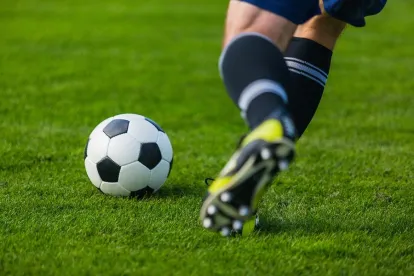Last week, Sports Shorts reported on how the top European football leagues were dealing with the completion of their 2019/2020 seasons as a result of Covid-19. Since then we have seen the much anticipated return of Germany’s Bundesliga (over the weekend just passed), which benefited from record viewership.
The K-League 1 (the “K-League”), South Korea’s top men’s professional football division, has also benefited from surging international interest. The K-League was the first professional football league to resume following a countrywide lock-down, with action resuming on 8 May 2020. Given that it was some of the only top flight football being played, it garnered significant and new interest from international broadcasters.
Record number of broadcasting rights deals for the K-League
With most countries on lock-down, it is not surprising that international broadcasters will focus their attention on those leagues which have been able to resume. Starved of live broadcast for months, football fans will jump at the opportunity to watch any live games that they can. Broadcasters were clearly alive to this when the K-League announced that it would return on 8 May 2020, becoming the first major league around the world to do so. This proved to be beneficial to the K-League, as it attracted the attention of broadcasters when it had previously faced difficulties in selling its broadcasting rights overseas, with failed tenders in recent months.
The K-League struck media-rights deals in 36 countries around the world ahead of the opening match, which were negotiated by Sportradar, K-League’s international broadcast rights distributor. These included:
-
The UK’s BBC streaming the season opener on the BBC Sports website and app;
-
German based Sportdigital Fussball, acquired the rights to live broadcast starting from the season opener in Germany, Austria and Switzerland;
-
Arena TV Sports, based in Serbia, will broadcast coverage in seven countries in the Balkan region including Croatia, Montenegro, and Serbia;
-
the Yonhap news agency reported that deals are also in place with CSM in China and Macao, digital platform FanCode in India, and broadcaster Carlton in Israel; and
-
in Australia, Optus Sports will broadcast two K-League matches per round(the K-League will be played in 27 ’rounds’: 12 teams play each other twice for a total of 22 matches. After which, the top six teams (Final A) and the bottom six teams (Final B) play the ‘Final Round’, consisting of a further five matches)).
The season opener, between Jeonbuk Hyundai Motors and Suwon Samsung Bluewings, was live- streamed on Twitter and YouTube, attracting 3.4 million and 234K views respectively, worldwide.
Domestic viewership also shot up during the opening weekend, with the first six matches of the season grossing an average 30,172 simultaneous viewers, up nearly 18 per cent from a season ago.
How will matches be played?
As can be expected, it was not business as usual during the opening match and the practicalities associated with putting matches on will be of interest to sporting bodies around the world as they seek to restart their own competitions. The K-League in fact shared its ‘Covid-19’ manual with the World Leagues Forum, an association representing football leagues around the world, including the English Premier League, Spain’s La Liga, and Germany’s Bundesliga.
South Korea’s government deployed extensive measures to avoid the spread of the virus, including a comprehensive plan for testing and for monitoring infections, which includes 2 week-quarantines for infected teams and suspension of the K-League if anyone tests positive on a game day. All matches will be played behind closed doors, meaning that no spectators would be allowed into the stadium.
The K-League will also enforce strict social distancing measures during every match. Everyone in the stadium has to maintain a 2-metre distance between each other and nobody is allowed to shake hands, spit or get too close to the referee. Face masks must also be worn by the players up until they run out onto the pitch.
In the season opener, crowd sounds replaced cheering fans in order to recreate the atmosphere for players and online viewers. There was mixed feedback from the teams, with head coach of defending K-League champions Jeonbuk Hyundai Motors, Jose Morais, reportedly commenting that players looked uncomfortable as a result of the empty stadium. The captain of the team, Lee Dong-kook, took the opportunity to express the importance of fans during the game.
Conclusion
It is clear that the K-League has benefited from being the first major football league in the world to reopen and has sealed international broadcast deals that may not have been possible, had it not been for the global football shortage. It was certainly a great opportunity for the K-League to showcase itself throughout the world, a sentiment touched upon by Jose Morais.
It will be interesting to see whether this has a net positive effect on South Korean football over the coming years, or whether interest in the K-League will fade once other leagues resume.



 />i
/>i

